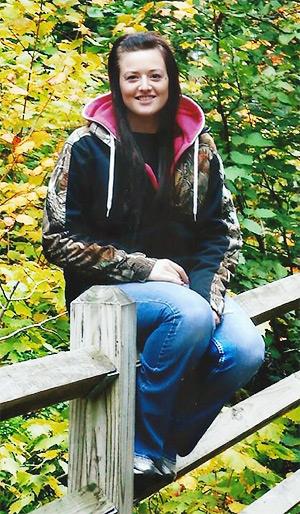When trying to determine which career to pursue, there are a lot of questions to consider. What’s my earning potential? Will I be able to find a job? What’s the work/life balance like? All of these questions are important to consider, but the most important question for Wausau graduate Michele Weyer is whether or not she’ll be able to make a positive impact through her work.

Weyer has already completed the first step toward an impactful career as a social worker by earning a bachelor’s degree. This is how her experience at Rasmussen College exceeded her expectations while helping prepare her for a lifetime of making a difference.
Looking to serve
Weyer’s enthusiasm to help others has been around since she was a child. As a young girl she was fixated on becoming a veterinarian, but as she grew older and learned more about the world around her she decided she wanted to focus on a career like law enforcement that would allow her to directly help the people who needed it the most. After completing high school she enrolled in a criminal justice program at Chippewa Valley Technical College.
Despite women only making up approximately 13 percent of the police force in the United States, Weyer says she wasn’t going to let her gender stop her from making an impact.
“I don’t get intimidated too easily,” she says. “I think it’s because I know that I can make a change and help people.”
Weyer earned an associate degree at CVTC but has her sights set much higher—she enrolled at Rasmussen College in 2012 to earn a bachelor’s degree and plans to eventually earn a master’s degree.
“When I was younger I’d tell my mom I’m going to the top—I’m getting my master’s degree so I can make as big of a change as possible,” Weyer says.
Getting adjusted
Before Weyer could reach the top, she had to adjust to life at Rasmussen College. She knew right away the biggest challenge she’d face was adapting to online courses. She admits to being skeptical about the value of a primarily online education and was concerned she wouldn’t be able to get the most out of her classwork if she studied remotely. Fortunately, her concerns were alleviated quickly after trying the format.
“Kids are more vulnerable than anybody, and if their parents aren’t protecting them they don’t have anybody else to look out for them.”
“I was surprised with how much the teachers and everyone else interacted with me and that they still could actually teach me while online,” Weyer says.
Weyer was pleasantly surprised with how engaging her online classes were, but encourages other online students to visit their local campus to find out which academic tools are available.
“There are so many resources available to students—I didn’t learn about most of them until I was halfway through school,” Weyer says. “When I finally sat down and went through them all it was like ‘I’ve been missing so much stuff’.”
The student support services like tutoring and academic writing reviews weren’t the only resources Weyer could count on—one instructor, Shauna Froelich, went out of her way to make sure Weyer made the most out of her experience. Froelich’s efforts weren’t just based in the classroom; she invited Weyer to attend a conference on domestic violence. Weyer says the conference was eye-opening and was particularly moved by one speaker’s story of domestic abuse and how it almost took her life. Weyer says she went into the conference not fully understanding the extremes of domestic violence, but left with a much different perspective—one that further reinforced her desire to become a social worker.
Next steps
Weyer’s preferred career has shifted some since starting school, but her motivation to help others in her community remains the same. Instead of working in law enforcement Weyer would like to begin a career as a social worker, preferably in child protective services. Weyer’s desire to work in child protective services stems from her desire to help those who really have no way of helping themselves.
“Kids are more vulnerable than anybody, and if their parents aren’t protecting them they don’t have anybody else to look out for them,” Weyer says.
Weyer earned a bachelor’s degree in 2013 and is planning to earn a master’s degree in social work from Indiana University. While she still has a lot of academic coursework ahead of her, she remains determined to make a career out of helping people in her community.
Make an impact
Earning an education doesn’t just have a positive impact on your life—it can help others as well. Whether you prefer the role of a social worker or that of a law enforcement officer, there are numerous ways you can make a positive impact on your community with a degree from Rasmussen College’s School of Justice Studies.





